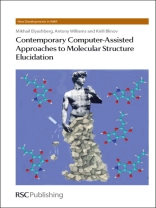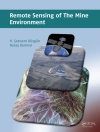Computer-Assisted Structure Elucidation (CASE) systems are a combination of software algorithms and tools to support and enable chemists and spectroscopists engaged in the process of molecular structure elucidation via the analysis of spectroscopic data. These expert systems dramatically reduce the time associated with structure elucidation and improve the reliability of the results. Contemporary Computer-Assisted Approaches to Molecular Structure Elucidation describes the principles on which these expert systems for spectroscopic structure elucidation are based and concisely explains the algorithmic concepts behind the programs. The authors use their own personal experiences in the development of the Structure Elucidator (Struc Eluc) CASE software system to discuss the present state-of-the-art in computer-assisted structure elucidation. Scientists that are presently using CASE systems will be interested in the algorithms and modern approaches and for organizations that are currently using the Struc Eluc platform the book is designed to help researchers understand the strategies behind CASE as well as details regarding the Struc Eluc platform. For scientists that have never used CASE systems they will now have access to all necessary information to understand CASE systems for mastering this new and very effective approach to structure elucidation. The authors overall goal is writing this book is to produce the ‘must read’ definitive text that will represent the results of decades of work to develop computer-assisted structure elucidation software systems. CASE systems are now powerful software tools commonly outperforming and correcting human interpretations of data. This book will also provide an historical perspective of the work of the founding fathers of the technique and identify the challenges that have been overcome to produce modern CASE systems.
Mục lục
Foreword; Introduction;An Introduction to general CASE Principles; Axiomatic Approaches to Structure Elucidation; NMR Spectrum Prediction and Structure Confirmation; Knowledge bases and their application to CASE; Data processing, preparation and input; Generating Molecular Connectivities from Spectral Data; Approaches to Algorithmic Structure Generation; The Challenges of Non-Standard Spectral Responses; Algorithmic Determination of Relative Stereochemistry; Applications of CASE to real world examples; Applications of CASE systems to structure revision – algorithms and humans, the need for synergistic collaboration; An Evaluation of the performance of modern CASE systems – Structure Elucidator; Comparisons of Systematic CASE Systems Versus Traditional Approaches; A Vision of the Future of CASE Systems; Conclusions
Giới thiệu về tác giả
Professor Mikhail E. Elyashberg graduated from the Faculty of Physics at the University of Tomsk, Russia. He obtained a Ph.D from the Moscow Pedagogical University and Dr. Chem. Sci from the Institute of Geochemistry and Analytical Chemistry at the Russian Academy of Sciences (GEOKHI RAS). He headed the Laboratory of Molecular Spectroscopy at the All-Russian Institute for Organic Synthesis in Moscow (1981-2001). Since 1995, has been the leading researcher at GEOKHI RAS and since 2001, he has been a Senior Scientist at Advanced Chemistry Development Ltd. (ACD) in Moscow. Professor Elyashberg is a Laureate of the State Prize of the Russian Federation, the highest scientific award in Russia. Antony J. Williams graduated with a BSc and Ph D in chemistry from the University of Liverpool and University of London respectively. He subsequently became a Post-doctoral Fellow at the National Research Council in Ottawa and then an NMR Facility Director at the University of Ottawa. He has also worked as an NMR Technology Leader at Eastman-Kodak in Rochester and held a number of positions, including Chief Science Officer, at ACD/Labs. In 2007, he established Chem Zoo, Inc and became host of Chem Spider, one of the primary internet portals for chemistry. Chem Spider was acquired by the Royal Society of Chemistry (RSC) in 2009 and Dr Williams is currently Vice-President of Strategic Development at the RSC. Kirill A. Blinov received his MSc in Chemistry from Moscow State University. He started working on Computer Assisted Structure Elucidation (CASE) systems in 1996 and is currently a senior scientist at Advanced Chemistry Development Inc. He is the primary architect of the ACD/Structure Elucidator software program and co-inventor of the indirect covariance processing algorithms used for the processing of 2D NMR spectroscopy data.












